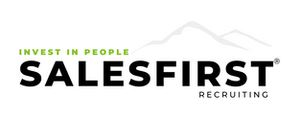Why Being Relatable Beats Being Perfect in Sales Interviews
When it comes to sales interviews, too many professionals approach them like they’re auditioning for the role of "perfect human." They’ll spend the entire time trying to impress the interviewer, check off every box on the job description, and prove they’re flawless. But in reality… interviews don’t work that way.
Hiring managers—especially in B2B sales—aren’t looking for the "perfect" candidate. They’re looking for someone they feel comfortable working with, someone they trust to represent their company and connect with their clients. And trust doesn’t come from perfection; it comes from authenticity.
Think of it like a first date. When someone spends the whole evening name-dropping, trying to sound cool, and avoiding any vulnerability, what happens? They come across as fake, or worse, exhausting. The same is true in an interview. If you’re trying too hard to be everything, you’ll end up being nothing memorable.
What Does Being Relatable Look Like in an Interview?
Being relatable starts with being you. It means sharing your actual experiences, not just polished stories you think the interviewer wants to hear. Here’s how to do it:
1. Bring Up Real-Life Situations
Don’t be afraid to share specific examples from your work or even your personal life that shaped who you are as a salesperson. For instance, if you’ve learned patience by coaching a youth soccer team, talk about how that’s helped you navigate difficult clients. These stories make you human and memorable.
2. Show Humility
Humility is not weakness. It’s being honest about the fact that you’re not perfect—and no one expects you to be. Everyone is a work in progress. If you’ve made mistakes, share what you’ve learned from them. For example, instead of saying, “I’m great at closing every deal,” try, “I’ve learned to close more deals by getting better at asking the right questions early in the process.”
3. Be Real About Your Strengths and Weaknesses
Everyone has strengths and weaknesses, and pretending you don’t have any flaws is an instant red flag. Talk confidently about what you’re great at, but don’t shy away from mentioning areas where you’re still growing. For instance, you might say, “I’ve always excelled at building client relationships, but I’ve been working on improving my data analysis skills to better target leads.” This kind of honesty shows self-awareness and a willingness to grow.
4. Acknowledge What’s Going On in Your Life
If there’s something relevant happening in your life—like relocating for family reasons or transitioning from a different industry—share it. It gives context to your decisions and shows that you’re a real person with a story, not just a résumé.
The Pitfalls of Trying Too Hard
When you focus too much on impressing the interviewer, a few things can happen:
You come across as insincere. Over-polished answers can feel rehearsed and robotic, which makes it harder for the interviewer to connect with you.
You dilute your unique qualities. By trying to check every box, you lose the opportunity to stand out for the things that make you different.
You miss the comfort factor. Employers want to hire someone they feel comfortable sitting next to in a meeting or sending out to represent the company. If you’re too busy performing, they can’t get a sense of who you actually are.
Why Comfort Matters More Than Perfection
At the end of the day, hiring managers are people. They’re not just looking for skills—they’re looking for someone they feel good about working with. The best salespeople are relatable because they build trust, whether it’s with a customer or an interviewer.
So, stop aiming to be perfect. Be honest about what you bring to the table, where you’re still growing, and what’s happening in your life. You’ll find that being relatable and real not only makes interviews less stressful but also leaves a lasting impression—one that can’t be faked.

